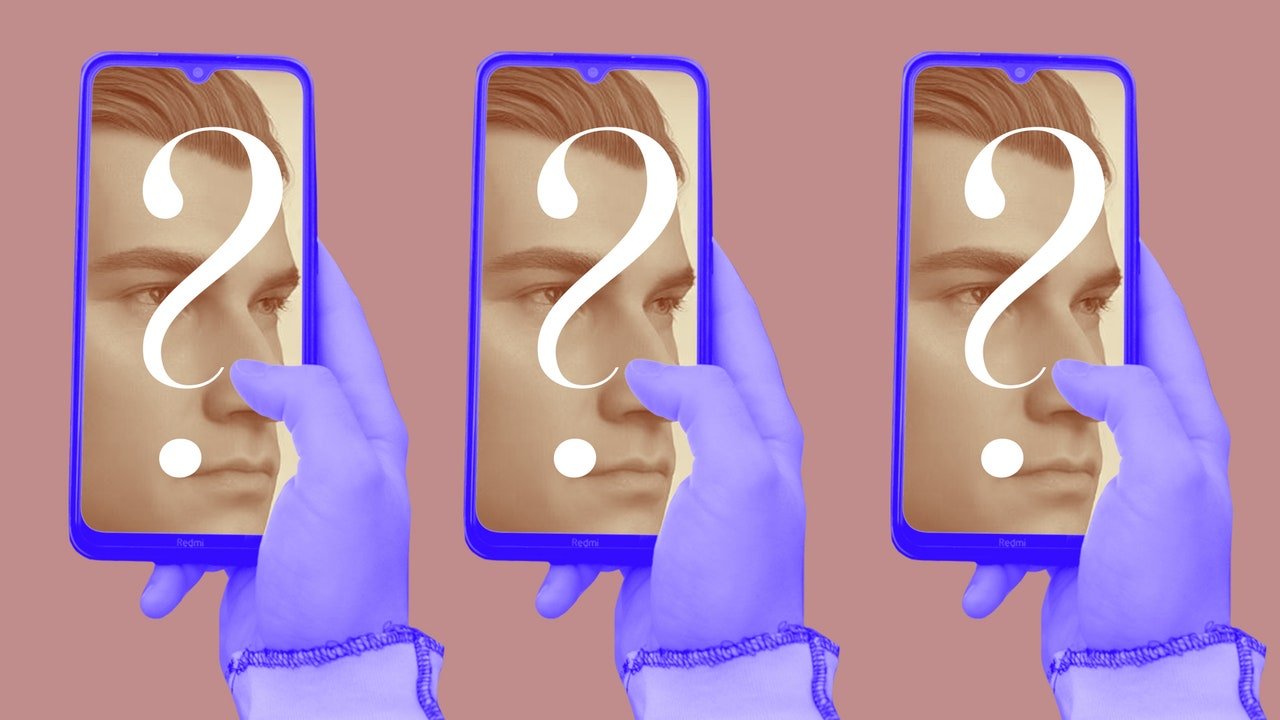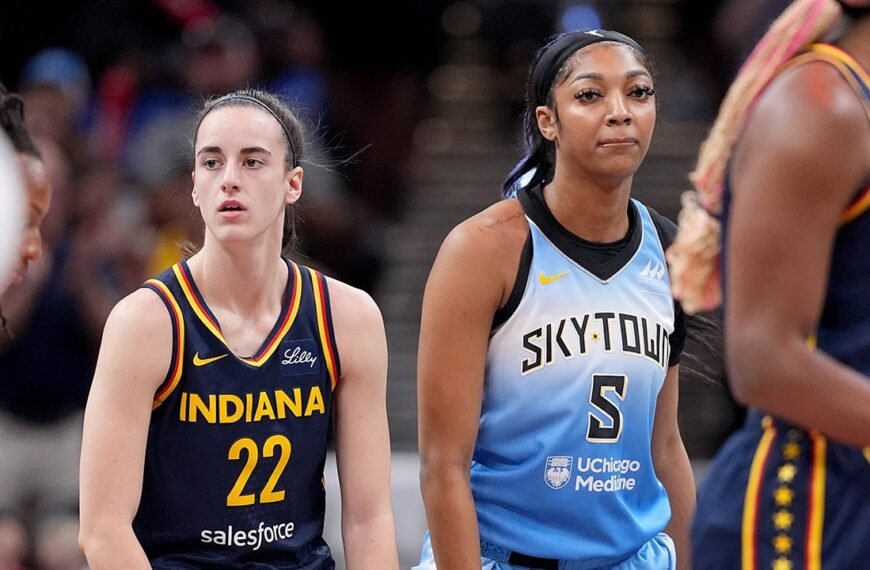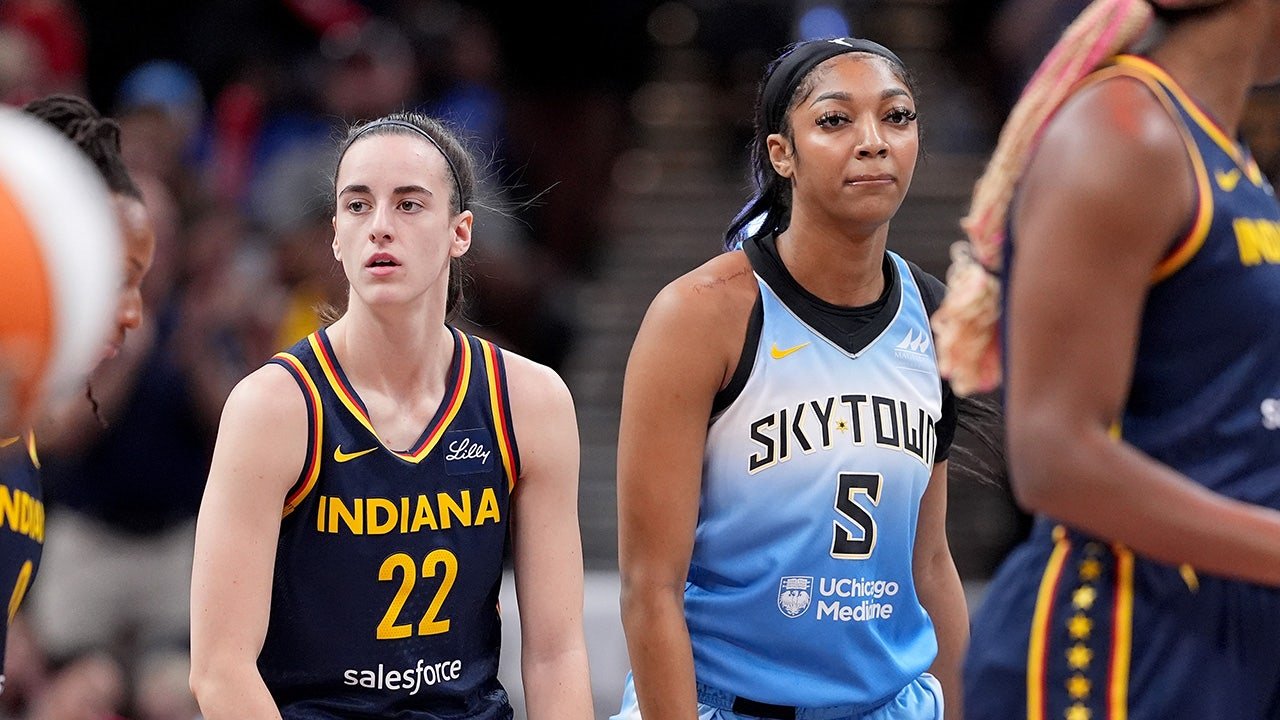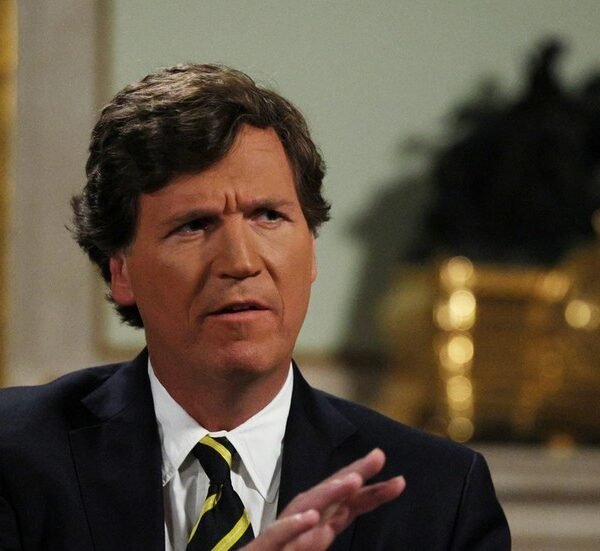That said, a tweak here and there probably isn’t going to hinder your chances too much. A study published in November 2023 which asked women to assess male Tinder profiles with edited versus non-edited photos found that men with filtered pictures were typically perceived as more physically attractive but less trustworthy – resulting in higher dating intention overall. But there’s a limit. Professor Dr Markus Appel, a psychologist and media researcher who worked on the study, references the “psychological contract” that mobile daters engage in: a sort of mutual expectation that the person you’re speaking to will “not differ fundamentally from the person represented by the profile”. “If the basic picture is altered to the fact it does not look like yourself, it’s violating this contract,” Markus says. “If you decide not to inform this person and use that picture nonetheless, that gets into this unethical perspective.”
Then it comes down to actually meeting someone IRL. Chrissy, 25, uses the facial filters on Instagram and Snapchat in a lot of her Tinder photos – but, because they’ve become so normalised, she doesn’t worry too much about appearing different in person. “It’s obvious from my pictures that I use filters, they’re basically digital make-up,” she says. “When every app shoves enhancements in your face, it’s hard not to use them. Since so many are readily available and searchable, I think their use will only grow.” Another dater, who preferred to stay anonymous, uses Snapseed and Photoshop Express to edit his pics. “Sometimes people will spot you’ve edited and then doubt the rest of what you say about yourself as a consequence,” he says. “But I wouldn’t say it’s made meeting people in real life much of a concern, because people can be different online compared to in person anyway.”
There’s still a huge lack of accountability online: you don’t need to show photographic ID or promise you’re the height you say you are. Sure, Bumble, Tinder and Hinge provide icons on profiles when users have completed photo verification – usually involving a live selfie video – but it’s not required. Earlier this year, Tinder took it a step further, announcing that ID verification, using official documents like a driver’s licence or passport, would be introduced to users in the US, UK, Brazil and Mexico following a trial in Australia and New Zealand which found that ID-verified users saw a 67 per cent increase in matches. It seems like a step in the right direction, but then again, it’s still not a requirement.
On the other hand, part of me wonders if it really ought to be that deep. Dating should be fun and spontaneous and light-hearted – something that makes your stomach scrunch into a tight knot, something you can discuss over a bottle of rosé in the garden with your friends – not something that’s overly policed and requires two-step verification and impossible “select the photos with a bike” captchas. But then again, things are moving fast. Just last week, Bumble founder Whitney Wolfe Herd described a not-too-far-off Black Mirror-esque scenario where singles could use AI dating personas as stand-ins for real dates. If we’re heading towards a strange, dystopian dating future anyway – one where we fall in love with cyborgs and avoid meeting in real life – maybe it is necessary?
Or perhaps it’s going to push us away from the apps even more. In the last month alone, there have been a tonne of new IRL dating events popping up all over London, from speed-dating vinyl listening sessions to singles running clubs. Flesh dating is trendy: nothing carries more clout than recounting your meet-cute rather than saying “Hinge” when someone asks how you met your partner. Still, when it comes down to it, the apps aren’t going anywhere anytime soon. I’d like to think there’s only a small portion of people who’ll edit their pics to the point of deception – but until we have our own When Harry Met Sally moment, seeding out who is real and who is sort-of real is just another part of the game.

















